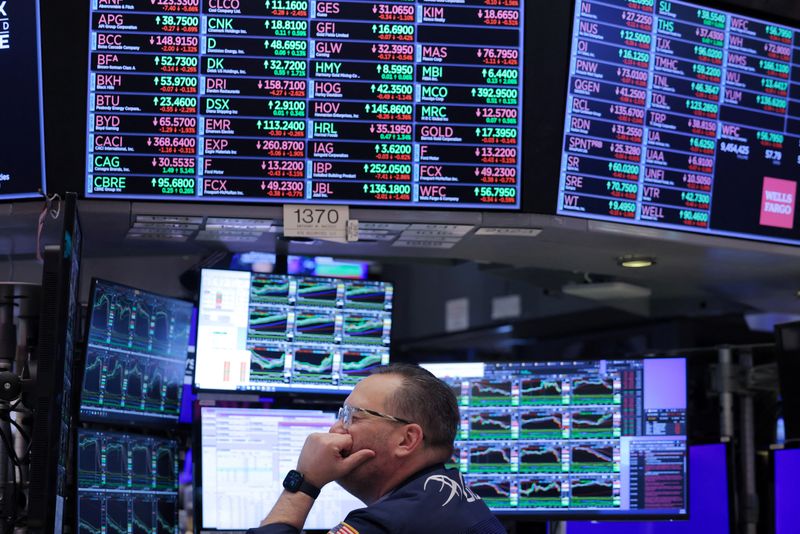Walmart halts H-1B visa offers amid Trump’s $100,000 fee increase - Bloomberg
Investing.com -- UBS has upgraded its stance on U.S. equities to Attractive from Neutral, saying the backdrop for stocks remains constructive as resilient economic growth, monetary easing, and booming AI investment continue to support sentiment.
The bank’s strategists said the risk that tariffs will tip the economy into a pronounced downturn has eased, helped by the Federal Reserve’s pivot toward additional rate cuts.
Moreover, they believe that “AI investment trends should remain favorable” and argue that the supportive environment for equities can last longer than previously anticipated.
UBS raised its S&P 500 earnings per share (EPS) forecast by $5 for both 2025 and 2026. It now expects EPS of $275 next year, implying 10% growth, and $295 in 2026, or 7% growth.
The bank also raised its year-end S&P 500 target to 6,900 and set a June 2026 target of 7,300.
U.S. stocks have continued to notch fresh highs in recent months, before pulling back on the recent escalation in trade frictions between Washington and Beijing.
But while economic activity has eased, it remains resilient, strategists note, pointing to low household and corporate debt levels, good access to capital and “scant evidence that companies are contemplating layoffs” as indicators that growth can continue.
Strategists also expect activity to pick up into 2026 as the temporary effects of tariffs fade and Fed cuts filter through interest-rate-sensitive sectors.
The team highlights the Fed’s recent policy shift as a key tailwind. They said that when the central bank is easing and forward earnings estimates rise by more than 5% over 12 months, equities have historically delivered strong returns with low odds of a negative year.
“Overall, we believe the bull market for U.S. stocks remains intact and upgrade our preference for U.S. equities from Neutral to Attractive,” the team led by David Lefkowitz wrote.
UBS cautioned that risks to the bull case include weaker-than-expected AI spending or adoption, inflation running above expectations and a delayed economic slowdown tied to trade policy.
It acknowledged investor debate around equity valuations and concentration, but argued that with tech companies “firmly committed to AI spending growth” and the Fed cutting rates, near-term downside risk looks limited.
The bank said it does not expect U.S. policymakers to pursue tariff actions that would raise the risk of recession, suggesting any trade-induced market volatility would likely be “short-lived.”
